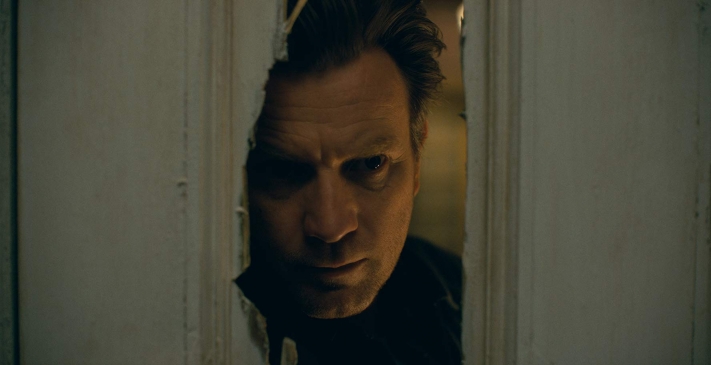Combining Hollywood's current obsession with legacy sequels with the resurgence of Stephen King adaptations (this year has already seen the climax of the IT saga, a new take on Pet Sematary and Netflix's In the Long Grass) Doctor Sleep initially feels like a relatively unappetising prospect. Yet writer-director Mike Flanagan's take on the material not only justifies the existence of a sequel to The Shining but also manages to find a way to keep the brilliance of Kubrick's work, redeeming it within the lore of Stephen King (the writer notoriously hated the director's adaptation).
Picking up decades after the devastating events at the Overlook Hotel, Doctor Sleep finds Danny Torrance a broken man, running from his gift and searching for his place in the world. Simultaneously, another child's ability is beginning to manifest itself, bringing her to the attention of Rose the Hat, who has nothing but ill intentions for her.
Doctor Sleep is a triumph, taking the time to craft a fascinating revisit to the world of The Shining. It helps that there is a breadth of talent in the ensemble, with even those in minor roles impressing (Jacob Tremblay, Bruce Greenwood). Cliff Curtis is an endearing presence as a new-found friend for Danny, whilst Carl Lumbly takes on a key role effectively. Yet the film belongs to its central trio with each putting in an engaging, often fascinating turn. Rebecca Ferguson makes a charismatic and unnervingly likeable villain, whilst Kyliegh Curran feels like a terrific find (this is only her second film), carrying her scenes with aplomb. But for my mind it is Ewan McGregor (and how good it is to see the actor in a meatier role again) who stands out the most. It's a quiet, powerful turn from McGregor, with the impact of the trauma that Danny faced at the Overlook Hotel etched on the actor's face, playing into so many of his small gestures.
It is Doctor Sleep's relationship with past traumas that makes it such an interesting film. Much like last year's Halloween, the film works best as an exploration of how trauma reverberates through a victim's life from the moment of impact. There are fantastical elements to Doctor Sleep but it is the more grounded moments that linger. Flanagan's film finds the humanity in Stephen King's words, something often missing from other adaptations. It is this that makes this the strongest work based on a King text since Frank Darabont's The Mist.
The direction here is wonderfully skilful, with Flanagan managing to bridge King's book and Kubrick's film whilst retaining some of his touches (fans of The Haunting of Hill House will be very pleased with Doctor Sleep). The director's regular cinematographer, Michael Fimognari, brings a crisp, eerie visual palette that couples nicely with the roving camera borrowed from The Shining. The Newton Brothers' score is packed with the expected audio cues from Kubrick's film, but does not overdo them, weaving them into a larger soundscape. And Flanagan's own editing is superb, aiding to the film's stylistic flow.
Doctor Sleep is a total surprise. It is a sequel that not only justifies its existence but also manages to add new depths and tones to one of the greatest horror films of all time. And yet it works best when it is not trying to be a sequel to The Shining and instead explores its own ideas and mythos. Flanagan's technical skill is majestic, whilst his adaptation's ability to find King's humanity means Doctor Sleep has a terrific impact. There is much more to say on this work, immediately placing it as one of the best genre films of 2019 and one that, if embraced, you will adore.




